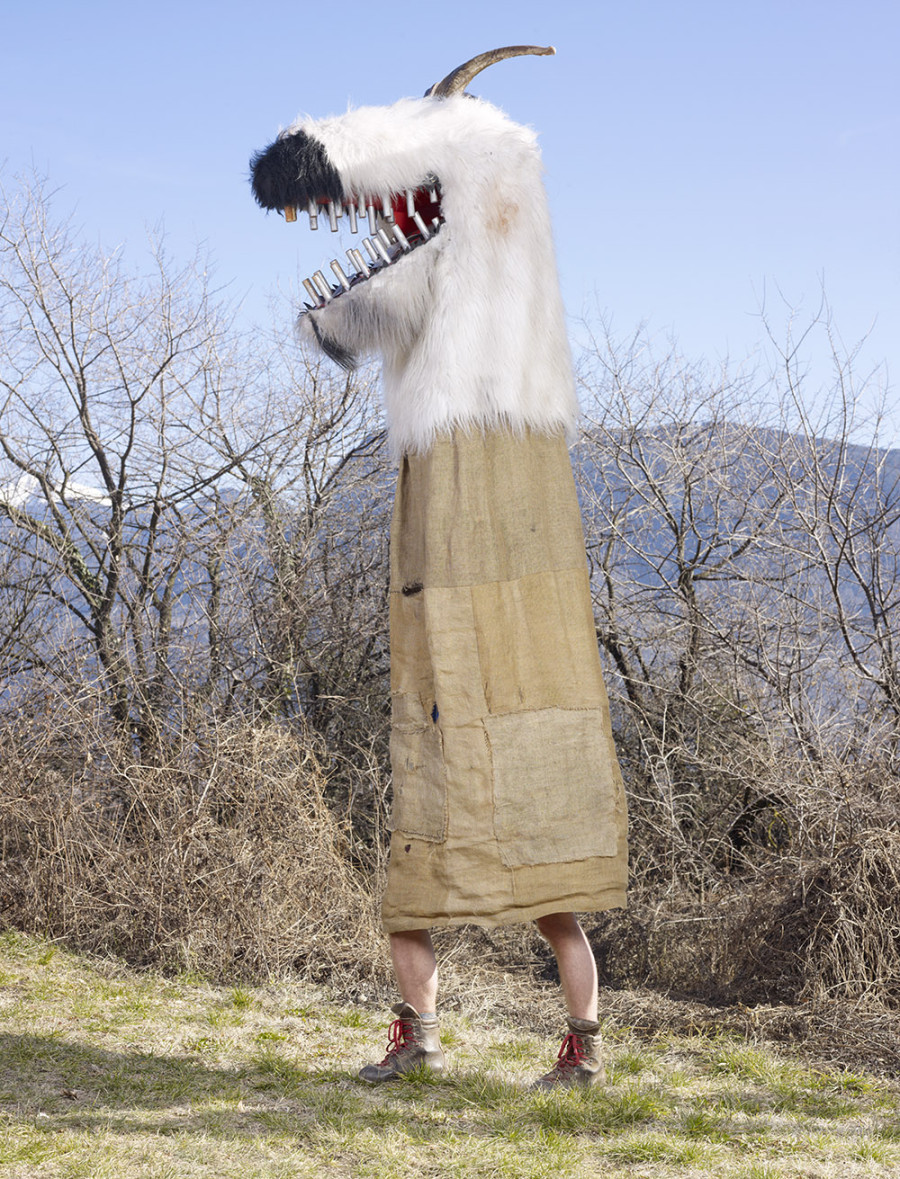In several countries throughout Europe, winter spurs a string of Pagan rituals and carnivalesque festivities that -- since before the dawn of Christianity, in some cases -- have served as means for humans to converse with mother nature and celebrate spring's upcoming rebirth. Many of these otherworldly traditions, strange as they may seem, are still being practiced today.
During the tribal rituals, which celebrate changing seasons, rites of passage, death, fertility and other events, men don costumes and take to the streets, obscuring their appearances and morphing into an amalgamation of human and beast. In essence, civilized citizens become wild men.
In the winters of 2010 and 2011, photographer Charles Fréger journeyed through 19 countries, documenting the various male-centric rites he encountered along the way. He dubbed the enchanting series "Wilder Mann."

Schnappviecher, Tramin, Italy, 2010-2011© Charles Fréger, Courtesy Yossi Milo Gallery
"I found myself in front of something very radical, [with] no face," Fréger told Slate of his experience. "It was more of a character with a mask and a focus where the body is more important than the face itself." The ensembles, made from animal skins, local vegetation, and other materials, access a surreal realm between the self and the other, which is nearly impossible to look away from.
"It's like they are representing everything which is from outside of reality," Fréger explained to Interview.
The disguises vary from geographical location to location, depending on the country's regional traditions. In Sardinia, Italy, men dress as goats or boars while Austrians transform themselves into versions of Krampus, Santa Claus' far more evil, beastly companion. Yet looking beyond specifics, the elaborate masks universally obscure the boundaries between reality and myth, science and spirituality, civilization and wilderness. They all straddle the line between human and animal, and -- in their confetti colors, looming statures and furry textures -- attempt to form a bridge between past and present worlds.
The wild men below resemble snowmen, scarecrows, overgrown Christmas trees and horrifying cousins of "Game of Thrones" characters. As incredible as the costumes are themselves, we're even more in awe of the fact that these unearthly practices still exist among so many modern Europeans. As Gerald Creed, who studied mask traditions in Bulgaria, told National Geographic: "They all know they shouldn’t believe it." And yet, despite contemporary cynicism, there remains something about the primal magic of it all that keeps the remarkable traditions alive.
See the gorgeous beasts below and let your imagination run wild.









